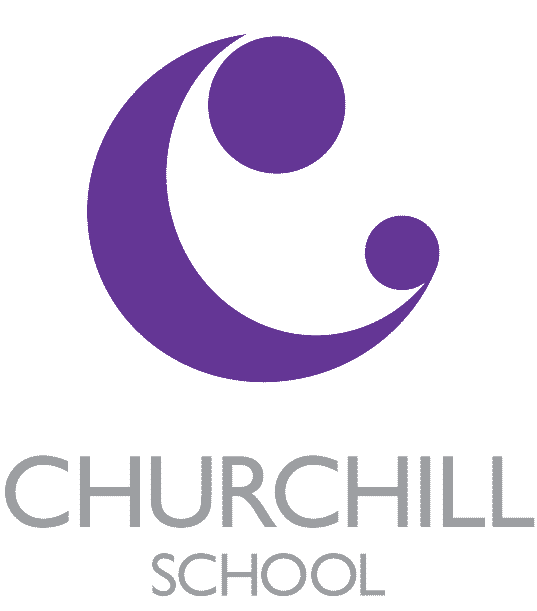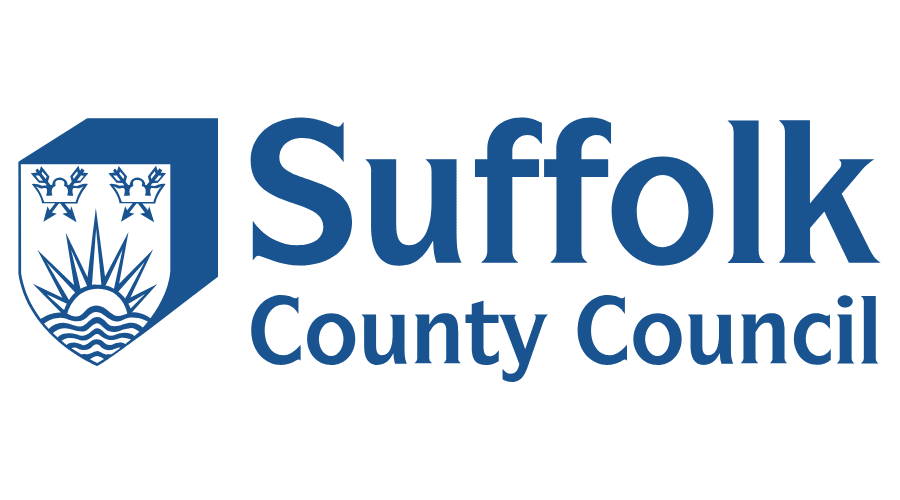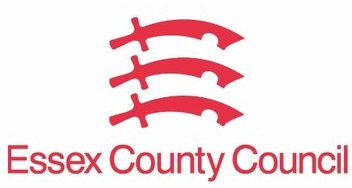SEND Provision
Objectives of the provision
This page provides a framework for the identification of and provision for children with Special Educational Needs. It is written for the benefit of all member of the school community to ensure that the potential of every child is maximised irrespective of ability, disability, race, gender and social origin and to enable equality of access to to the curriculum in an environment where every student is valued and respected. At Churchill School we welcome students with special educational needs and disabilities and we will ensure that all students have an equal opportunity to engage in the curriculum.
The happy and secure environment of our school allows students to reach their fullest potential. Our model for learning begins with fostering curiosity and enquiry, and emphasises the process and development of skills and concepts.
The school environment creates conditions for effective learning, to stimulate and motivate children to find out about themselves and the world they live in. Students are valued and supported in the process of growing up and developing into adults.
The school will strive for educational excellence in all it does. It will recognise that each individual has a unique set of skills and that each individual is able to fulfil their potential.
Churchill School is a testament to it’s determination and resolve and the students who attend are demonstrating day by day that, despite problems and difficulties they face with the right help and support, they can be successful.
We believe that Communication is a fundamental human right. It is a key life skill which underpins a student’s social, emotional and educational development. It is at the core of all social interaction and for some children and young people, acquiring the ability to communicate is difficult and painful.
Approximately 7% of five year olds entering school in England have significant difficulties with speech and/or language. These children are likely to need specialist and/or targeted intervention at key points in their development. A significant proportion of children and young people both in primary and secondary schools with special educational needs have SLCN as their primary need. In contrast, secondary SLCN are associated with other difficulties that the student may be experiencing such as autism, cerebal palsy, hearing loss or more general learning difficulties.
Churchill Special Free School is here to help them. To intervene as early as possible to prevent the anguish, isolation and suffering that this group of children can endure.
If you wish to contact the school please do so using the following email address or the telephone number on our contact us page – staylorofarrell@churchillschool.co.uk
Please refer to the questions and answers section below relating to SEND information:
SEND INFORMATION REPORT
We cater for young people aged between 8 (Year 4) and 18 (Year 13) who are of average or above average cognitive ability, usually with a diagnosis of language and communication difficulties, high functioning autism, Asperger’s Syndrome or social pragmatic difficulties and those difficulties associated with specific learning difficulties such as dyslexia.
The students’ needs may be complex, creating significant barriers to learning. They may have associated behavioural difficulties, but they will not have severe learning difficulties or behaviour difficulties that relate to complex emotional problems.
Each application is assessed on an individual basis. In each case, we take account of the needs of the individual student and consider whether the school would be suitable to meet their needs with particular reference to the following factors.
Students will be assessed at age related expectations or just below:
- Students will have an Education and Health Care Plan, specifying that they have specific difficulties with language, interaction and communication or a diagnosis of autistic spectrum disorder, such as high functioning autism or Asperger’s Syndrome. Due to the variation in diagnostic terminology students may be diagnosed with an autistic spectrum disorder, autistic spectrum condition, autism or pervasive development disorder.
All students have full access to the curriculum – including access to Enrichment activities and all school trips.
- As a purpose built special school, Churchill School is fully accessible. The building is light, classrooms are large and the site is both safe and secure.
- From Year 9 we follow a GCSE curriculum offer in addition to taking Entry Level Qualifications and completion of the Duke of Edinburgh Award (DofE)
There will be early identification of specific needs through:
- Information from transferring schools and other settings
- Information from parents, families and carers
- Information held within the EHCP (education and health care plan) of the student and annual reviews of the plan
- One page student profiles
- A range of additional assessments are carried out if there are concerns about progress or additional needs that have not yet been identified
- There is a School’s Medical Conditions Policy – Care Plans are in place for all students needing them.
The development of assessments procedures is ongoing and under regular review so that we can adapt out curriculum and use our resources efficiently to take account of group and individual needs. As part of this process we use a range of assessment strategies including teacher assessment, National Curriculum SATs, external examinations and accreditation. These assessments are used alongside other relevant information in the planning of the curriculum and in setting whole school and cohort targets.
- All students are assessed using standardised tests by the Speech and Language Therapy team
- Some students may receive an assessment using standardised assessments by the Occupational Therapy team, if or when a need arises
- Class teachers conduct writing assessments with students within the classroom environment
- Other curriculum assessments are used regularly to measure progress and targets
- Additionally, students may be assessed by the Educational Psychologist if they are experiencing difficulties in learning, behaviour or social adjustment
- We may make referrals to our school nurse to ensure that students are safe and comfortable whilst at school and that their health needs provide limited barriers to them accessing the curriculum
- Assessments are carried out in KS4 so that Exam Access Arrangements can be put in place for all students who meet the criteria. Students and parents will be informed when this occurs
- All staff receive comprehensive and ongoing training in meeting the needs of students with Autism Spectrum Disorders and Speech Language and Communication Needs.
- Whole school training includes: safeguarding, manual handling, first aid, training related to administration of medication such as Epi Pens, behaviour management, Social Stories, social skills programmes and Schoolsafe training in: Legal framework, Theory of de-escalation, Risk Management and Physical de-escalation.
- The SENCo has achieved the National SENCo award (NASENCO) and the Postgraduate Award in Proficiency in Assessment for Access Arrangements (PAPAA)
- Classes have high staffing ratios and each highly skilled class team is able to quickly identify requirements for additional support on an ongoing basis throughout the year and will discuss these with senior managers and parents.
- Classes have a high staff to student ratio.
- Teachers plan for the students with the guidance of the SENCo and support of Teaching and Learning Assistants.
- Teachers responsible for the overall assessment of student progress.
- Students are taught as a whole class, in small groups and 1:1 by teachers, HLTAs and teaching assistants.
- We believe it is important for students to develop relationships with a number of adults and so we do not allocate specific assistants to work with identified students.
- All students work with every adult in their class team.
- Life skills are developed through the RSHE curriculum and every student has life-skills lessons as part of the schools curriculum offer. In addition, ASDAN is offered which specifically supports life-skills, work related learning and preparation for adult life.
The school Governors are ultimately responsible for the progress and attainment of all the students although they delegate this responsibility to the Head Teacher. Governors receive collated and anonymised data about the progress of groups of students and hold the Head Teacher to account for how good this is.
- Our students’ emotional well-being is as important as their academic progress.
- Teachers plan for the holistic development of each child in their class, using detailed knowledge of each individual to promote their confidence and self-esteem.
- On admission a one page profile summary, outlining a student’s needs and abilities, is written for each student in collaboration with them and their parents/carers.
- When a students behaviour becomes challenging, teachers are supported by senior leaders and the Pastoral Team in understanding the behaviour and agreeing with parents as to how best to manage it in a positive and proactive way.
- A Home-School Link Book is used to share essential information by both school staff and parents.
- On entry to school, parents/carers and staff commit to writing information in the books regularly. Essential, personalised information will be shared via the book.
- Using ParentMail the school can send messages to parents quickly and easily directly to phones and tablets notifying them of events, news and other information
- Students and parents are invited to contribute to the student’s one page profile on entry and at the time of the annual review.
- All students are invited to attend all or part of the Annual Review if they wish to share their views on school and their progress.
- Assessments of a student’s progress are made on a daily, weekly and half termly basis so the teacher always knows what each student in their class has achieved and what needs to be further developed.
- Once a term, each class teacher meets with a member of the senior leadership team to discuss each student’s progress. This progress meeting is used to identify whether students are on target or need additional support to make progress.
- The Family Liaison officer works with students and their family prior to the starting at Churchill
- Preparation for transition from KS2 into KS3 takes place in the summer term through liaison with parents and teaching staff.
- All students with Education Health Care Plans (EHCPs) have transition plans in place following their Year 9 Annual Review. During this review more emphasis is put on post 16 provision and preparing for adulthood
- Independent advice and guidance regarding careers education is offered to all students. A specialist careers advisor supports students across the school but particularly from Year 9 onwards.
- In KS4 students attend a college open day or an arranged tour of local colleges
- In KS4 students are supported on taster days at college by a member of staff
- In KS4 students are offered Travel Training in order to support transition to Post 16 education and independence. This depends on which local authority they reside in.
- Ongoing communication takes place with the Post-16 provision to support students to settle into their life after Churchill.
- Parents/carers meetings take place two times during the year – the SENCo will attend meetings where further support is needed. This is an opportunity to discuss progress and any concerns.
- All students with an EHCP will receive and annual review each year
- In addition to the school’s policy of communicating and reporting to parents/carers, the SENCo can be contacted via the schools office regarding any concerns.
- Parents are always involved in decisions regarding referrals for specialist advice/support from Educational Psychologists and other agencies.
- All decisions about students needing additional support will only be made after consultation and agreement with parents/carers.
- Parents/carers may also request referrals to be made.
Students at Churchill have the opportunity to integrate into Samuel Ward Academy. Whilst the full curriculum is taught at Churchill, students are able to access lessons at the academy if they are ready to do so after a discussion is held between the parents and the Headteacher. The students, parents, Senior Leadership team and SENCO at Churchill and Heads of Department at the Academy decide when and how integration will develop. Once a subject is identified:
- All students have a one page profile which is forwarded to the subject teacher in order for them to understand their needs before they attend the lesson.
- Samuel Ward staff are invited to Churchill to meet the student in their own environment.
- The student will visit the classroom that they will use for their lessons.
- The student will have a trial lesson with their class before deciding to attend the class permanently.
The first point of contact for anything relating to your child’s education is the form teacher. We encourage parents to contact us on an ongoing basis. Parents can make an appointment with the form teacher at a mutually convenient time by either telephoning the school office on 01440 760338 or by emailing admin@churchillschool.co.uk.
Churchill School
Chalkstone Way
Haverhill
Suffolk
CB9 0LB
Email: admin@churchillschool.co.uk
Tel: 01440 760338



